The appointment of ex-finance minister Oksana Markarova as the Ambassador Extraordinary and Plenipotentiary of Ukraine to the United States was unprecedentedly public. Despite the well-established diplomatic practice, the wide audience was aware of all stages of this process – from the nomination and receipt of the agrement to the expected dates of signing the relevant decree.
In addition, there were many versions of the reasons for this decision and doubts about the feasibility of replacing career diplomat Volodymyr Yelchenko with a political appointee from the financial sphere at this extremely important position.
However, all that became history when President of Ukraine Volodymyr Zelensky issued a decree appointing Oksana Markarova as the Ambassador Extraordinary and Plenipotentiary of Ukraine to the United States on February 25.
Ukrinform had an opportunity to be one of the first to congratulate the newly appointed Ambassador on the official start of her diplomatic career and ask Oksana Markarova about her motives, plans, tasks and priorities as the head of the Embassy of Ukraine in Washington, D.C.
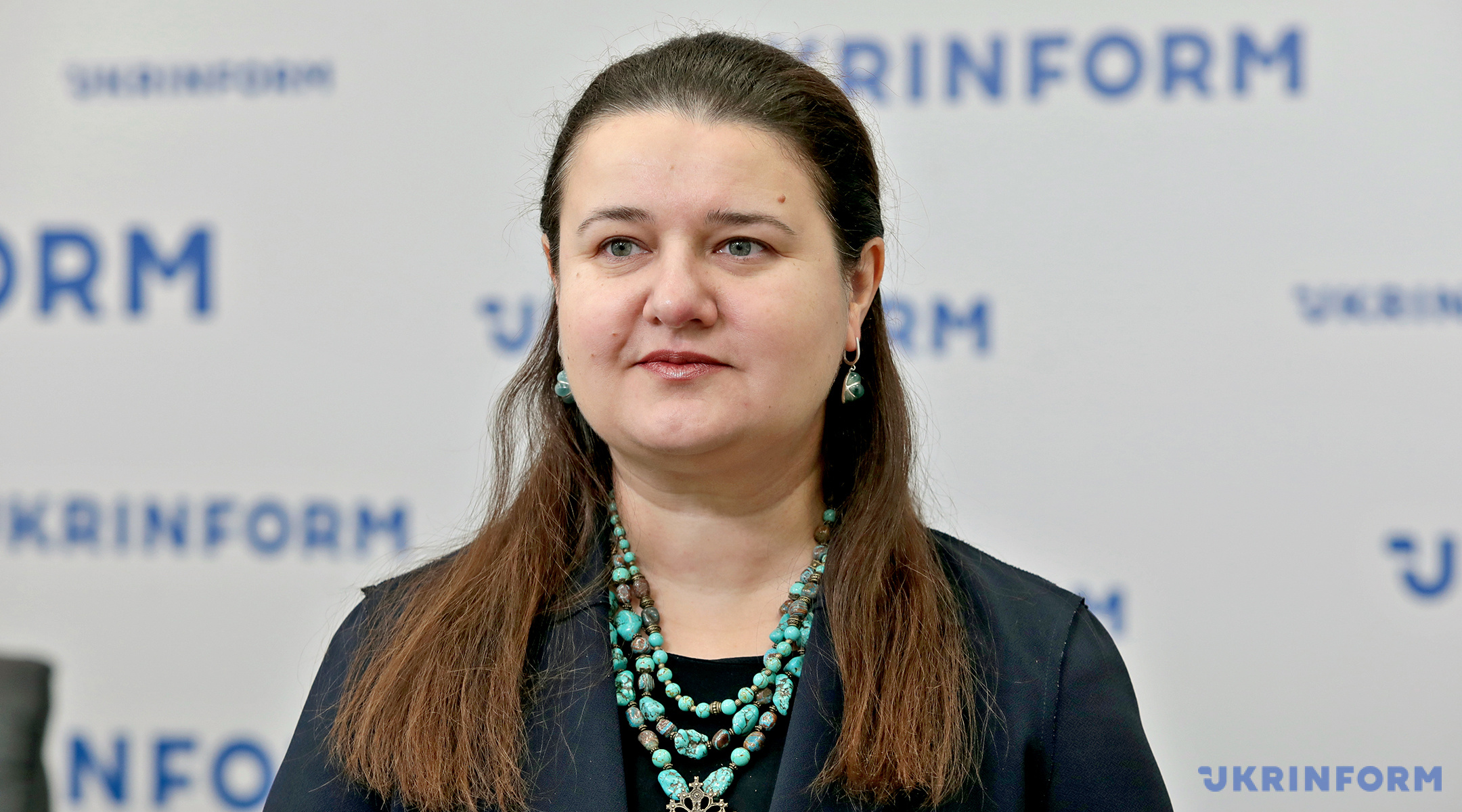
I FEEL I AM READY FOR THIS WORK
- Madam Ambassador, Facebook recently reminded me that it has been more than six years since Natalie Jaresko offered you to join the Finance Ministry team and you wrote: "Sometimes you make a choice, and sometimes a choice makes you." And who "made" whom in the case of the proposal to head the Embassy of Ukraine in the United States?
- Facebook recently reminded me of another thing: immediately after the victory of the Revolution of Dignity, I wrote that the first thing that needs to be done after the appointment of a new Government is to deal with public finances. Back then, I didn't think that I would have to do it myself (laughs).
But when Natalie Jaresko offered me to join the team of the Ministry of Finance, I did not even think I could reject that proposal as I considered it my duty to do my utmost to help, although I did not think that I would stay so long.
When I left the Ministry of Finance in March last year after almost five years of work, I assume, with pretty good results, I did not plan to return to civil service in the near future.
However, when the proposal to head the Ukrainian Embassy in the United States came from both Minister of Foreign Affairs Dmytro Kuleba and the President, it also became one of those that cannot be rejected.
- Minister of Foreign Affairs Dmytro Kuleba said that your candidacy fit perfectly into the imaginary portrait of the Ambassador of Ukraine in Washington, D.C. Can you name your ideal traits in this sense?
- It’s an interesting question, but, probably, it will be more correct when others speak about my "ideal traits". I'd better tell you what I like to do and what I think will help me in my diplomatic work.
First of all, I really like to build and solve issues in a comprehensive way: from the development of an idea, a strategy, an action plan and up to the implementation and, most importantly, the creation of an institution that will be able to perform its function in the future.
Second, I like to work with different people and reach agreements on issues that would seem impossible, doing it not in a conflict way, when you won and the other side lost, but when everyone accepts the agreement.
In fact, international and domestic negotiations were a big part of my work in the Ministry of Finance, and I think this experience will be useful to me in the diplomatic service.
Third, I really enjoy doing more than is expected of you. For example, while serving in the Ministry of Finance, apart from the typical duties, I was involved in the launch of the Ukrainian Startup Fund, the E-data project, the Investment Promotion Office (UkraineInvest). In my opinion, it will also be possible to launch many additional effective projects at a diplomatic position, in synergy with the Embassy.
Well, in fact, I think the most important thing that encouraged me was my love for Ukraine, as pathetic as it may sound, faith in its great future and the opportunity to help approach it.
Of course, there is something to learn in every job, but I definitely do not feel a lack of knowledge or skills. In addition, I will work in a team of experienced diplomats at both the Embassy of Ukraine in the US, the Ministry of Foreign Affairs and the entire diplomatic family. Ukraine had wonderful ambassadors to the United States before me, and I see that more can be done on the basis of what they and my immediate predecessor, Mr. Volodymyr Yelchenko, did. I feel that I am ready for this work.
- Have you communicated with Volodymyr Yelchenko?
- Of course, I have!
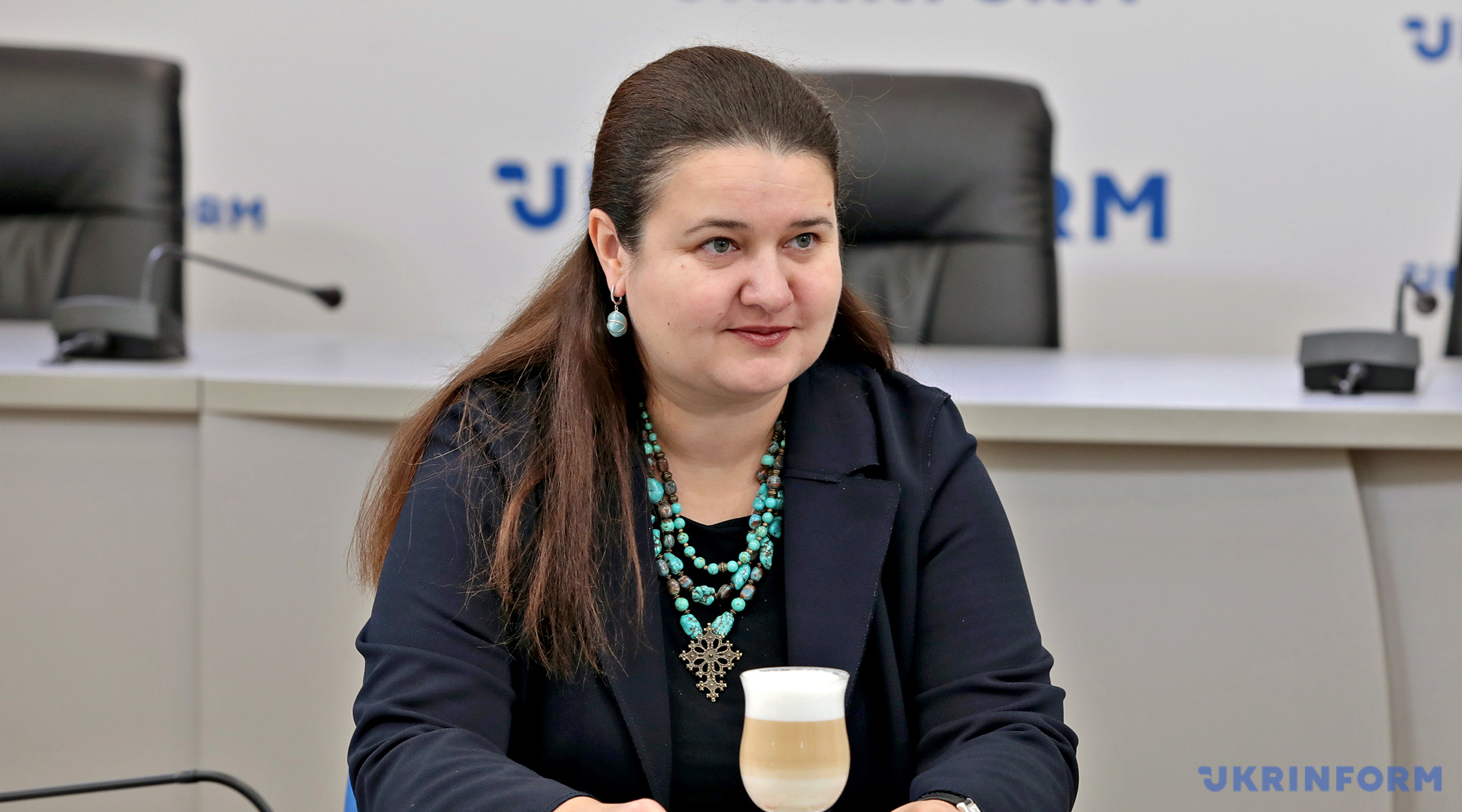
- Was everything okay? Were there any tensions or discomfort between you?
- When communicating with those who were the finance ministers before and after me, with other government officials, I have always proceeded from the fact that we are all members of one team "Ukraine" and work for the common cause, just in one configuration today and in another one tomorrow.
Therefore, on the contrary, it is absolutely convenient for me to cooperate, call, initiate some discussions, and I see the same approach on part of my colleagues.
Volodymyr Yelchenko is a wonderful man and an extremely experienced diplomat, so I received support and understanding from him.
COOPERATION WITH IMF IS HARDLY MAIN AND NOT THE TOP PRIORITY TASK OF THE AMBASSADOR TO US
- What tasks did the state leadership set before you leave for the United States?
- The general task was set by the President of Ukraine and the Minister of Foreign Affairs: the utmost development of our strategic partnership with the United States in all areas that are a priority today.
The priorities are, in particular, to expand cooperation with the Biden administration and political dialogue based on their broad bipartisan support; actively participate in all security issues related to the restoration of the sovereignty and territorial integrity of Ukraine and the return of the occupied territories of Donbas and Crimea; and strengthen the security of our country and region.
In addition, these are new tasks that the President now sets before diplomats in the financial and economic area: to be economic ambassadors of Ukraine and do their best to promote, on the one hand, the development of Ukrainian companies in the US and support exports and, on the other, the attraction of US companies’ investment in Ukraine and the implementation of joint projects at various levels, so that trade and investment cooperation between our countries could increase manifold.
All these issues are priorities that I will deal with from the very first days in office.
- Some experts expressed the opinion that your appointment is linked with the need to establish effective communication with the IMF in order to receive the next tranches. Were you given such a task?
- In general, I was surprised to read such comments, especially from some experienced diplomats, who should know what the ambassadors are doing and what is their participation in resolving issues with the IMF.
There is a team of negotiators in the Ministry of Finance and the National Bank who work on this issue every day, there is a great representative of Ukraine in the IMF, Vladyslav Rashkovan, as well as Roman Kachur in the World Bank and Artem Shevalev in the EBRD, who have been engaged in our cooperation with international financial partners in a highly professional and efficient manner for several years now.
Of course, as an Ambassador, I am ready and will join all the issues where I can be useful and help the Ukrainian side in this work. Most of the central bodies of financial institutions are located in Washington, D.C., and I have a great deal of successful experience in cooperation with them and a wide base of personal contacts at all levels, including senior management, but cooperation with the IMF is hardly the ambassador's main task in Washington.
- Will you convey an official invitation for U.S. President Biden to visit Ukraine on the 30th anniversary of independence?
- Let's not talk about dates, but, of course, we are actively working - and this work has already begun - to arrange a telephone conversation between the presidents of Ukraine and the United States, as well as a visit of President Zelensky to the United States and a visit of President Biden to Ukraine.
OUR PARTNERS IN THE UNITED STATES CLEARLY UNDERSTAND WHERE WE SHOULD MOVE ON OUR OWN AND WHERE WE NEED THEIR HELP
- Deputy Head of the President’s Office Ihor Zhovkva said that Ukraine developed a new roadmap for relations with the United States. Can you tell us any details? Are there any plans to hold a meeting of the U.S.-Ukraine Strategic Partnership Commission in the near future?
- When we talk about a new day in our relations with the United States, we mean that it does not start from scratch, but after a long history of our strategic partnership. And it is new because we want to make this partnership much more intense.
All our priorities are clear: political support, security cooperation, development of economic ties, humanitarian issues. We are working on a comprehensive road map. It includes both the issue of the content of our cooperation, i.e. what we will do, and the issue of formats: how we will do it.
There are specific areas of work for each of the priorities on the road map. Of course, it includes a meeting of the Strategic Partnership Commission at the level of foreign ministers.
There may be new formats of cooperation in the areas of countering cyber threats and military aggression, where Ukraine has the experience that can be useful to the United States.
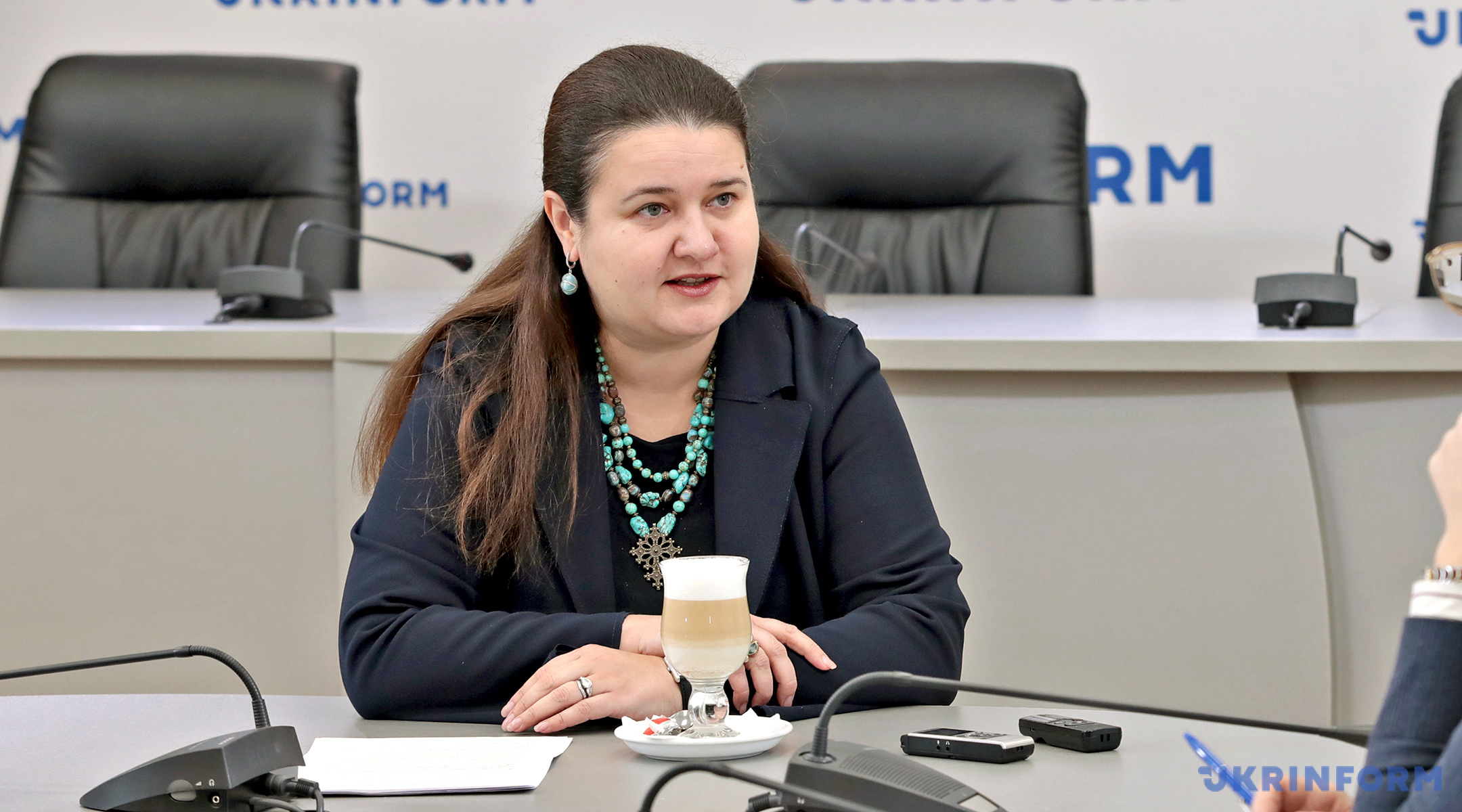
- Does this roadmap have any time frames or is it a set of ideas?
- This is a set of specific proposals with clear themes and functionality, as well as the formats we offer.
Of course, there are suggestions for time intervals that we are currently setting for ourselves. But, as we all remember, it takes two to tango, so once we determine what and how we will do for each of our proposals, the time frame will be clarified.
We understand that we have very little time, and the President sets these tasks as urgent so in many areas we will act as quickly as the consent of our partners allows.
-According to your forecast, the fact that U.S. President Joe Biden is well versed in Ukrainian realities will facilitate or, on the contrary, complicate your work as an ambassador?
- I consider, of course, it’s a very positive aspect that our strategic partner is led by a president who knows Ukraine very well.
- But he knows not only our good features but also our shortcomings…
- I would draw a parallel here with true friendship or happy family life, which can be built only by accepting both positive and negative in each other.
It seems to me that the deep awareness of both the President of the United States and many members of his team about Ukraine is a big advantage. This will allow our strategic partner not to waste time studying the "Ukrainian dossier".
In addition, they clearly see not only our strengths and weaknesses but also the context and challenges we face, and they understand where we need to move on our own and where we need their help.
- Can we count on an effective dialogue with the team of the new U.S. President given the situation with the fight against corruption in Ukraine, in particular, the restoration of a mitigated punishment for inaccuracies in e-declarations, the delay of judicial reform? That is, it seems that we are forced to take half a step in the main direction, in which they require us to move.
- I suggest moving away from the paradigm that the fight against corruption is required of us by our international partners as, first of all, this is a requirement of our citizens.
All election programs of Ukrainian political forces contain points about the need to develop the rule of law and reduce corruption because this is what people and honest Ukrainian business demand, and without which it is impossible to move forward.
Perhaps, this movement is not quite straightforward and not as fast as we would all like. But we are a democratic country, so progress in complex reforms is possible only with discussion and agreement of many parties, as well as a joint effective counteraction to the opponents of progressive change.
For example, judicial reform is the most difficult of all: it takes a lot of time, and there will be problems along the way - it must also be understood and we must have patience and perseverance to solve them.
If we talk about the anti-corruption state structure in Ukraine, then, despite all the unbelief that it can be built, despite all the criticism and possible shortcomings, it exists, works and, I think, has already become part of our lives.
As far as lifestyle monitoring is concerned, we are in fact an unprecedentedly open state - I have not found in most countries so much information about almost all civil servants in public access. And in matters of financial monitoring and identification of beneficiaries, we can already teach others a lot.
At the same time, I am convinced that there is a critical mass of people in Ukraine - in government, in the civic sector, in business - who wants to fight corruption. Do we succeed in everything? Definitely not. However, this is just an occasion for us to work harder and for our American partners to support these positive transformations.
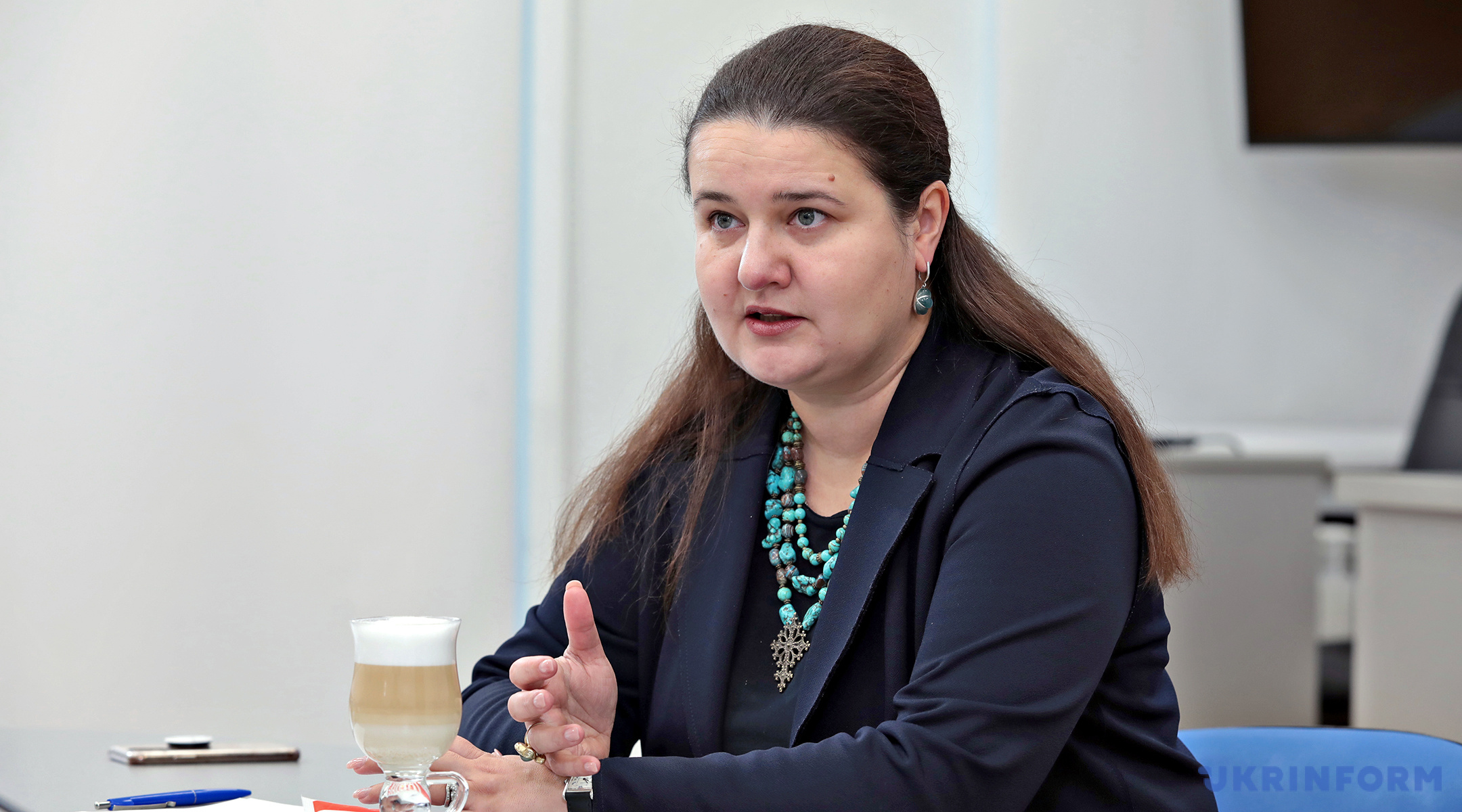
WE HOPE FOR UNITED STATES’ SUPPORT IN RESTORING PEACE AND MOVING TOWARDS NATO
- The main priority of our foreign policy is to establish peace in Donbas and return Crimea. What support do we expect from the new U.S. administration to achieve these goals?
- First of all, it is, of course, the utmost pressure and strengthening of sanctions by the United States and our European partners, so that the price of Russia’s aggression against Ukraine increases all the time until the aggressor changes his behavior.
The next thing is Ukraine's involvement in the collective security system and our accession to NATO. This is a very important priority, and we hope, with the support of our strategic partner, to do everything necessary inside the country as soon as possible to make the MAP and our accession to the Alliance a reality as soon as possible.
The third issue is the assistance in increasing the capabilities of our armed forces and security system.
We have already heard from President Biden about the readiness of the United States to help Ukraine more, including with armaments. But the question is not only to get weapons but also to build up the capabilities of our Armed Forces.
I think we have many opportunities both for bilateral cooperation with the United States to strengthen our army and to increase security in the Black Sea region.
Of course, we will develop investment cooperation with the United States in the defense sphere and the involvement of our strategic partners in all existing formats of counteraction to Russian aggression against Ukraine.
- Do you plan to start a dialogue in Washington on security guarantees for Ukraine within the framework of the Budapest Memorandum?
- Let's start from where we are now.
Many issues related to previous guarantees can be raised, but we see that, unfortunately, this has not prevented one of the signatories of this document from occupying Crimea and carrying out aggression against Ukraine for seven years already.
Therefore, we will use all possible tools and formats with a focus on those things that can guarantee our security for the future, which are [accession to] NATO and buildup of capacities of the Armed Forces of Ukraine.
- Anyway, joining NATO is a matter of years. What is your short-term priority: the United States’ support for granting Ukraine the Membership Action Plan or a major non-NATO ally status?
- There are many formats of bilateral cooperation through concluding various agreements, which we will definitely develop. However, Ukraine made a clear decision on the movement towards NATO and enshrined this decision in the Constitution.
Our partners have been supporting decisions on Ukraine's future accession to the Alliance since 2008. Therefore, our goal now is to move along this path as quickly as possible, to get the MAP as soon as possible and, most importantly, to build our military capabilities in accordance with NATO standards.
I WISH UKRAINE BECAME A NEW SILICON VALLEY
- In an interview with the New York Times, President Volodymyr Zelensky spoke about the importance of strengthening the economic area of cooperation with the United States. Do you have any ideas about cooperation projects or the attraction of American investment?
- Of course, I have. There are several sectors in which we would be interested in getting more investment and in which, in my opinion, we could offer American business very interesting prospects.
These are, of course, innovations. I mean not only "pure" IT-sphere but, above all, high technologies in other fields: high-tech, agrotechnology, medicine, as well as the military-defense sector.
It is too early to talk about specific names, but we already discuss a number of projects in the defense sector, energy, mining, agriculture, where, I hope, we will be able to show progress during the first six to twelve months of work.
- Ukraine has many desires and expectations regarding the support of the United States of America in our efforts to counter Russian aggression, reform the country, and de-occupy Crimea. And what can Ukraine offer our strategic partner to make the relations between the countries a genuine partnership?
- First, we can play a much greater role as a regional partner of the United States in strengthening the security of the Black Sea region.
Second, Ukraine is one of the few European countries with huge growth potential, which due to location, resources, innovation and human potential can provide serious opportunities for business development.
Any global company can grow and become more competitive by adding Ukraine to its investment portfolio, whether it deals with services or products. That is, investments in Ukraine will be a success story not only of our state but also of the company itself.
In addition, Ukraine is currently undergoing the transformation that other states have made over the centuries. At the same time, we are a democratic, tolerant and very resilient nation.
And now, with new challenges in cybersecurity, social media, and terrorism, Ukraine, which has not only suffered these attacks earlier but also repelled them and developed safeguards, can help America and Europe respond to these challenges and be the key to addressing many global issues.
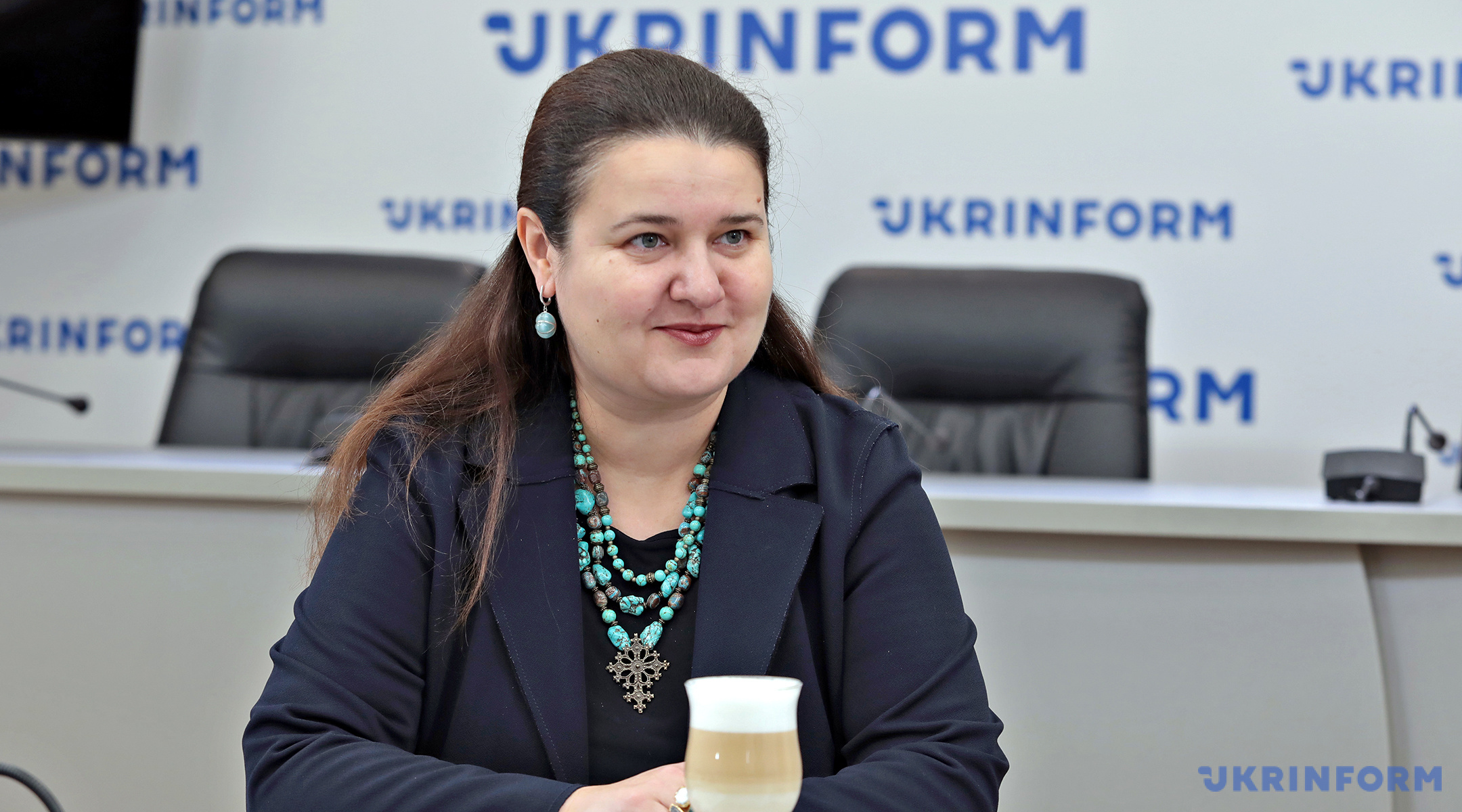
- Won't the anti-American rhetoric and accusations of external governance in our political discourse become an element of toxicity in your work?
- I know from my work in the Ministry of Finance that the more right things that benefit Ukraine and its development you do, the more people you deprive of corrupt money and influence. Of course, they respond to this with information attacks or the dissemination of myths.
It seems to me that we must not lose focus and we must not be distracted. We must continue to move forward as a distraction from moving in the right direction is one of the goals of such political activity.
It is clear where this narrative comes from and what its purpose is, but I think we sometimes pay too much attention to it.
As a country, we have long decided on our movement towards EU and NATO membership, it is enshrined in our Constitution and enjoys the support of the majority of citizens. Therefore, theses on external governance from some creators of political or economic myths are sometimes just ridiculous to read… How can equal cooperation with our European or American partners be external governance? This is normal internal work with our European family or with strategic American partners.
The most important thing, in my opinion, is that the anti-Ukrainian activity receives a proper assessment. That is, when it is outright propaganda and work in favor of the aggressor country, the state must respond to stop such hybrid attacks.
And in this sense, we see the decisive actions of both the President and the National Security and Defense Council, which I personally very much welcome.
- President Volodymyr Zelensky told about his dream to build Hollywood and Disneyland in Ukraine. And what would you like to transplant from American soil to Ukrainian?
- In Ukraine, there are bright sprouts of what I believe has become the secret of the United States’ success - the spirit of entrepreneurship and innovation, especially among young people. Ukraine is unique because it is a place where ideas grow, although, unfortunately, they are often implemented outside our country.
Therefore, I would like to transplant creative industries and innovations in the broadest sense of the word to our soil, so that the whole of Ukraine becomes a new Silicon Valley. This should be our great success!
Nadiya Yurchenko, Kyiv.
Photo: Hennadiy Minchenko
ol
